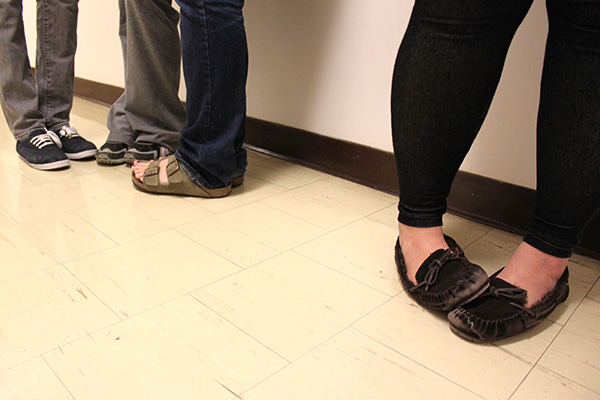

Shy, anti-social, socially awkward, isolated or not very outgoing students now have a place to meet up and make new friends with the creation of the Anti- Social Club.
“I have never met a single anti-social individual who didn’t desire at any level to interact with others,” club president Eric Rosenberg said.
Rosenberg, a second-year visual arts major, formed the club this fall. He said he established this because he wanted to have an organization for others who he felt he could relate to.
“During freshman year, I often joked about the idea of having a club for anti-social people and it was well received so I decided to actually create it,” Rosenberg said. “I wanted to unite the community of those whom are isolated so that the isolation would no longer be on their own.”
Rosenberg defines anti-social as a behavioral disposition where an individual spends the majority of time alone as a result of their distaste for others. However he said there are thousands of different ways in which someone who is anti-social can be described.
The mission of the club is to have a place for bored students to gather and chat with others who are anti-social in nature. At each meeting group members discuss ideas for the future and how to make the club more enjoyable along with just talking and joking around. They have had eight meetings so far and plan to continue gaining members along the way. Rosenberg said there are five consistent members that attend weekly and the greatest member attendance so far is seven. He said participation is not as great as he would like and explained that most people hear about the club and see it as a joke or think members will be unfriendly, but these assumptions are untrue.
“We may not have many members but not a single person who has showed up has been unfriendly,” Rosenberg said. “Some are shy and others are open minded but none were the stereotypical anti-social.”
Rosenberg said many people make broad assumptions about what it means to be anti-social, therefore they are unable to understand the concept behind the club. He feels that others may not see themselves as anti-social and feels like the negative connotations surrounding the word may dissuade them from joining the club.
“Not everyone who is anti-social hates interacting with others,” Rosenberg said. “They may be simply unskilled at it and are often discouraged from interacting with their peers due to social rejection, the inability to relate to others and problems maintaining conversation.”
The Anti-Social Club meets Wednesdays from 7:30 to 8:30 p.m. in the Student Union 414.
